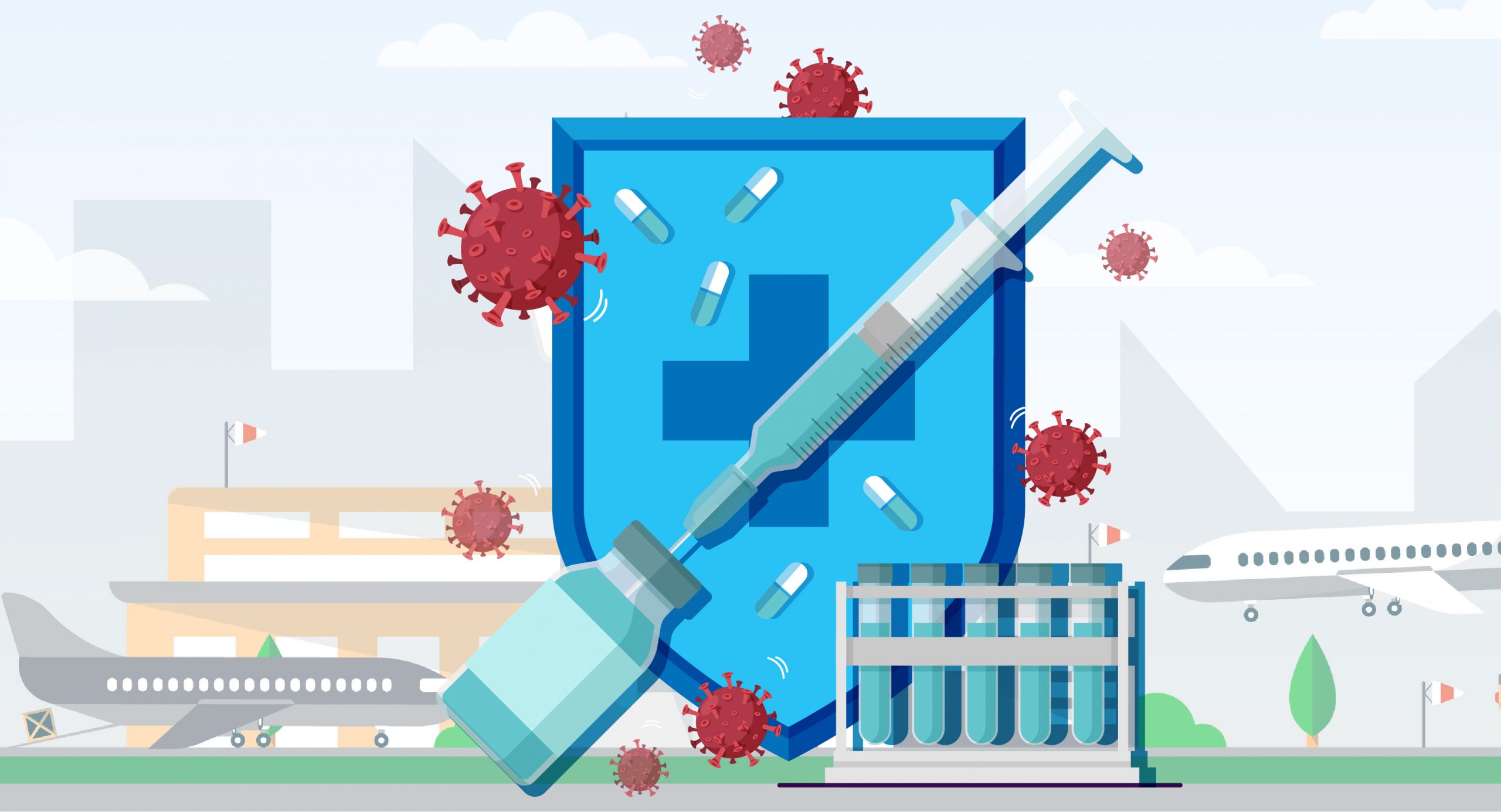Moving COVID-19 vaccines across the globe through Air Cargo – Mission of the Century
- Home
- ::
- Knowledge Centre
- ::
- Articles
- ::
- Moving COVID-19 vaccines across the globe through Air...

COVID-19 vaccines are soon to pass the essential testing procedures. Developing them is only half the problem. Distributing them worldwide will be a logistical challenge on an unimaginable scale.
Transporting the COVID-19 vaccine to 7.8 billion people around the world would fill 8,000 jumbo jets – this only illustrates the enormity of the distribution challenge.
Now, let us discuss how the vaccine can be distributed worldwide to different countries from one location. Let us say, Pfizer produces the vaccine from its facility in USA and a country in the Asia Pacific region has the greatest number of cases will require it first. Will it be possible for Pfizer to send?
Well, the key factor to be noted here is not about the vaccine being transported, but how it is transported. According to a recent news report, Pfizer announced that its vaccines need to be stored at a temperature level of -70 Degree Celsius.
Even the slightest change in temperature might affect the potency and efficacy of the vaccine, according to the report. This means, a rapid mode of transport is essential to transfer the vaccine across regions.
But, experts in the logistics value chain have always claimed that air cargo may not be able to provide the right environment to carry vaccines. This is more valid when it comes to maintaining temperature levels of -70 Degree Celsius.
Pharma Logistics experts claim, “Air Cargo can transport vaccines sooner, but at the cost of its potency and efficacy. This is because they don’t seem to maintain a proper temperature control environment. Medicines going on emergency lies along with other goods and in unfavourable conditions.”
Not all in Air Cargo are Ready
Anyhow, given the emergency situation, pharma cos. has got no other option than to rely on air cargo. On the contrary, only 28 percent of air cargo stakeholders are prepared to face the upcoming global demand as this is going to soar the air freight volume to over five times of the 2019 air vaccine trade capacity.
The time involved in obtaining an electronic air waybill (e AWB) is pretty less than its manual counterpart. With this agility, we can expect a mechanism would exist to manage the rest of the documentation process as well.
Read More on electronic air waybill (e AWB) generation and AWB Tracking with Cargo Community System
Some even say, “While the pressure is high on major airlines alone, even the two tier and three tier players have a significant role to play here as meeting capacity demands is a constraint.”
Regulators Prepping Up Stakeholders
Regulatory bodies such as International Air Transporters Association (IATA) and The International Air Cargo Association (TIACA) are setting frameworks for the stakeholders to evenly distribute the vaccine across the globe. These bodies are urging airlines to set favourable conditions for vaccines to be kept while transporting and storing it at warehouse facilities.
By making the air waybill electronic i.e., by issuing an e AWB, the dependence on the stakeholders on regulatory authorities are comparatively less as with e AWB, the document validation and verification takes place online.
Easing Cross-Border Trade
These regulators are requesting nations across the globe to introduce fast-track clearance procedures for overflight and landing permits. Added to this, exempting crew members from quarantine requirements followed by granting priority on arrival as well as considering tariff relief to facilitate vaccine movement are other measures which the regulators push for.
Security – The Key Factor
Given the current scenario, vaccines are among the most valuable commodity. Arrangements are in place to ensure the vaccine cargo remains secure in recommended conditions from tampering and theft. Moreover, processes are in place to keep the cargo secure, but the potential volume of vaccine will need early planning to ensure scalability. Applications supporting AWB tracking/cargo tracking will be of utmost utility in such scenarios.
As the need for rapid transportation post the vaccine rollout in billions, air cargo will have a major role to play. And to reap the complete potential of air cargo, leveraging technology is mandatory. In such a case, technologies such as cargo community system and cargo tracking/AWB tracking software as well as management applications will have a large role to play.






